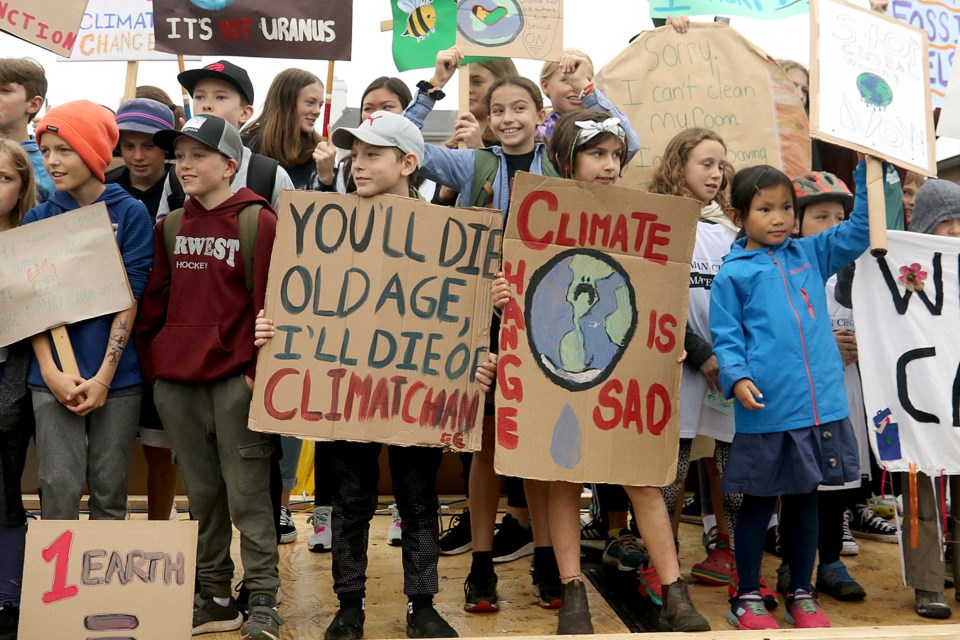THUNDER BAY – Two Thunder Bay-area residents can count an early victory in their legal fight to change Ontario’s climate policies.
Along with five other youth across the province, Madison Dyck and Shelby Gagnon launched a legal challenge in 2019 alleging the Ford government’s rollback of provincial climate targets endangered their rights to life, liberty, and security of the person under the Canadian Charter of Rights and Freedoms.
Their lawsuit asks the court to strike down the government’s 2030 climate target, a 30 per cent reduction in greenhouse gas emissions from 2005, as inadequate. Instead, they seek a court order for a new target in line with limiting global warming to 1.5 degrees Celsius.
The government sought to have the case dismissed, arguing it had no constitutional obligation to prevent harms associated with climate change, and that the harms of reducing its emissions target could not be scientifically proven.
In November, Superior Court Justice Carole Brown rejected those arguments, finding the lawsuit clearly engaged Charter rights, and that the court was well within its powers to review the government’s climate actions.
It’s an unprecedented ruling, said lawyer Fraser Thomson of Ecojustice, which represents the youth.
“For the first time, a Canadian court has ruled citizens have the ability to challenge their government’s actions on climate change under the highest law of the land,” he said.
Ontario will appeal Brown’s decision, he added, which will further delay a hearing on the merits of the case.
The lawsuit may be a less than ideal way to seek change, Thomson allowed, but said the youth he represented were left with few other options.
“Governments are probably best-equipped to handle these issues, but they’ve failed to do so,” he said. “They’ve known about climate change for the last 30 years, at the very least, and have repeatedly missed their targets.”
Madison Dyck, a young Thunder Bay resident who works in forestry and environment, was prepared for the case to take years, but worries the government’s appeal will extend that process even further.
“It’s frustrating that it takes so long, because this is urgent,” she said. “It’s more urgent every day that goes by.”
The evidence of that urgency isn’t hard to find, she said.
“I’ve been encouraging young people to look outside and observe these changes – the fact that Lake Superior isn’t frozen yet, that we don’t have enough snow to build a snow fort.”
The COVID-19 pandemic hasn’t caused any significant delays to the case, though it has hampered the youths’ ability to build awareness and engage the public.
“It definitely hasn’t looked like we thought it was going to,” Dyck said. “It’s given a lot of us time to look at things differently and slow down, so there may be a blessing to it.”
She’s hopeful some of the hard lessons of the pandemic will inspire greater climate action, seeing parallels in the temptation to deny an overwhelming problem.
“It’s not something we just get to flip on and off with the news, and [have it] go away,” she said. “Just like COVID, it’s really here with us, it’s not going anywhere, and the only way out is forward.”
On the positive side, the pandemic showed how quickly the forces of government, science, and industry can be marshalled to solve collective problems.
“To be able to connect with people around the world and know we’re all facing this common enemy, which is COVID – it’s a reminder that we’re all in this together,” she said. “[We need] to translate that energy and focus to climate change.”
The legal challenge is just one battleground in the larger fight for climate action, Dyck said, but an important one.
“There are a lot of places this fight is taking place,” she said. “It’s how I live my life, how I interact with people and the environment… but it’s also in courtrooms and in government buildings, and we’re allowed to participate in that.”
Taking part in the lawsuit is a way to assert the legitimacy of her rights and voice as a young person, she said.
“I always want to remind young people – and myself, too – that your voice is so valuable. You’re probably doing a disservice if you’re not using it to speak up about things you care about.”
Seeing others speak up has a snowball effect that was on full display with the youth climate strike movement sparked by Greta Thunberg, she said. That movement reached Thunder Bay in the form of significant Fridays for Future demonstrations.
“That was an amazing energy that COVID has squashed,” said Dyck. “But I know that’s not gone – I think it’s probably just burning in young people’s hearts.”



